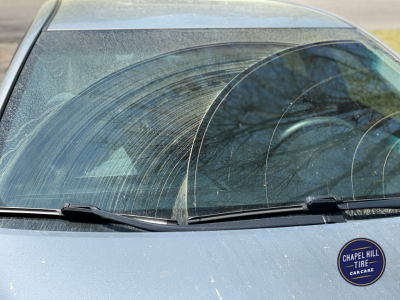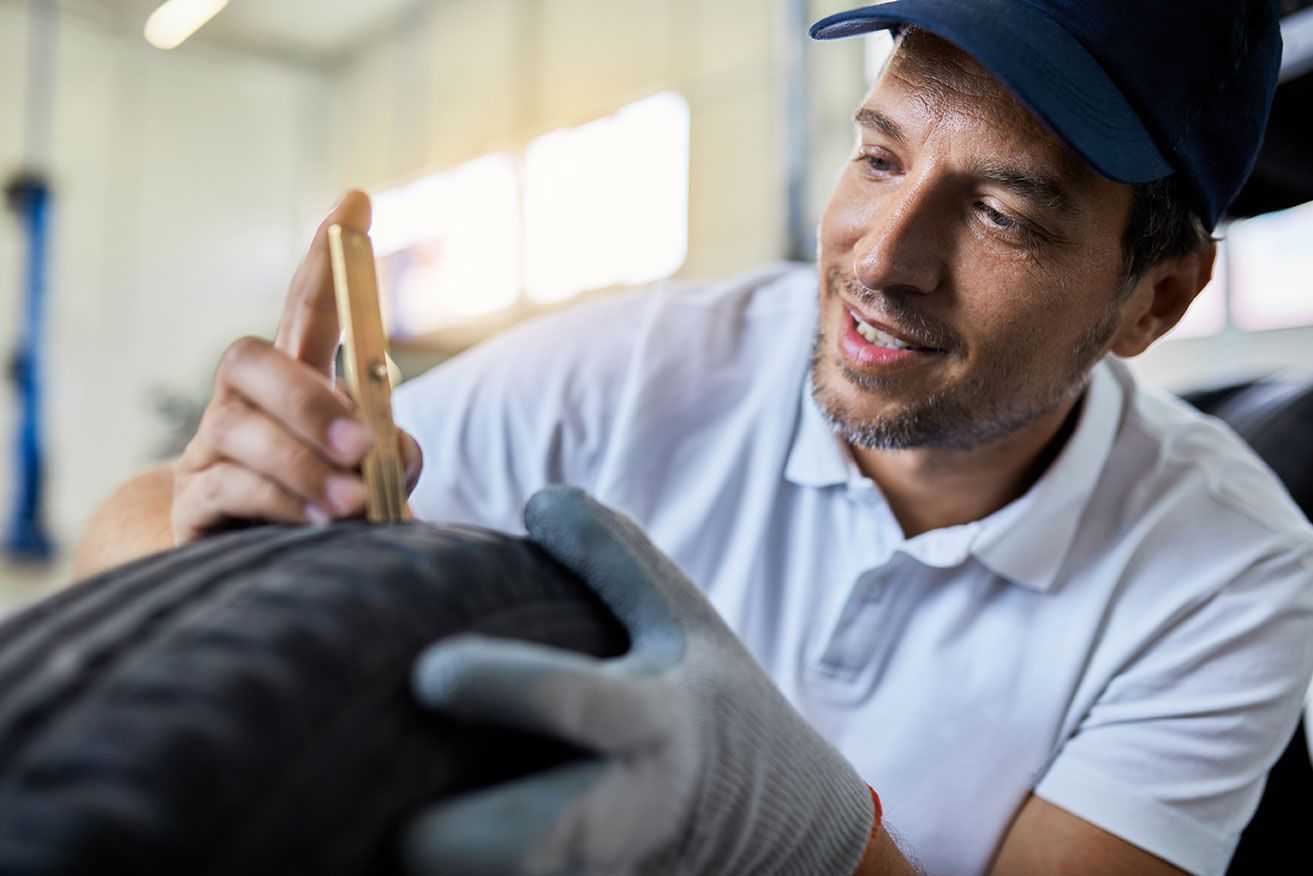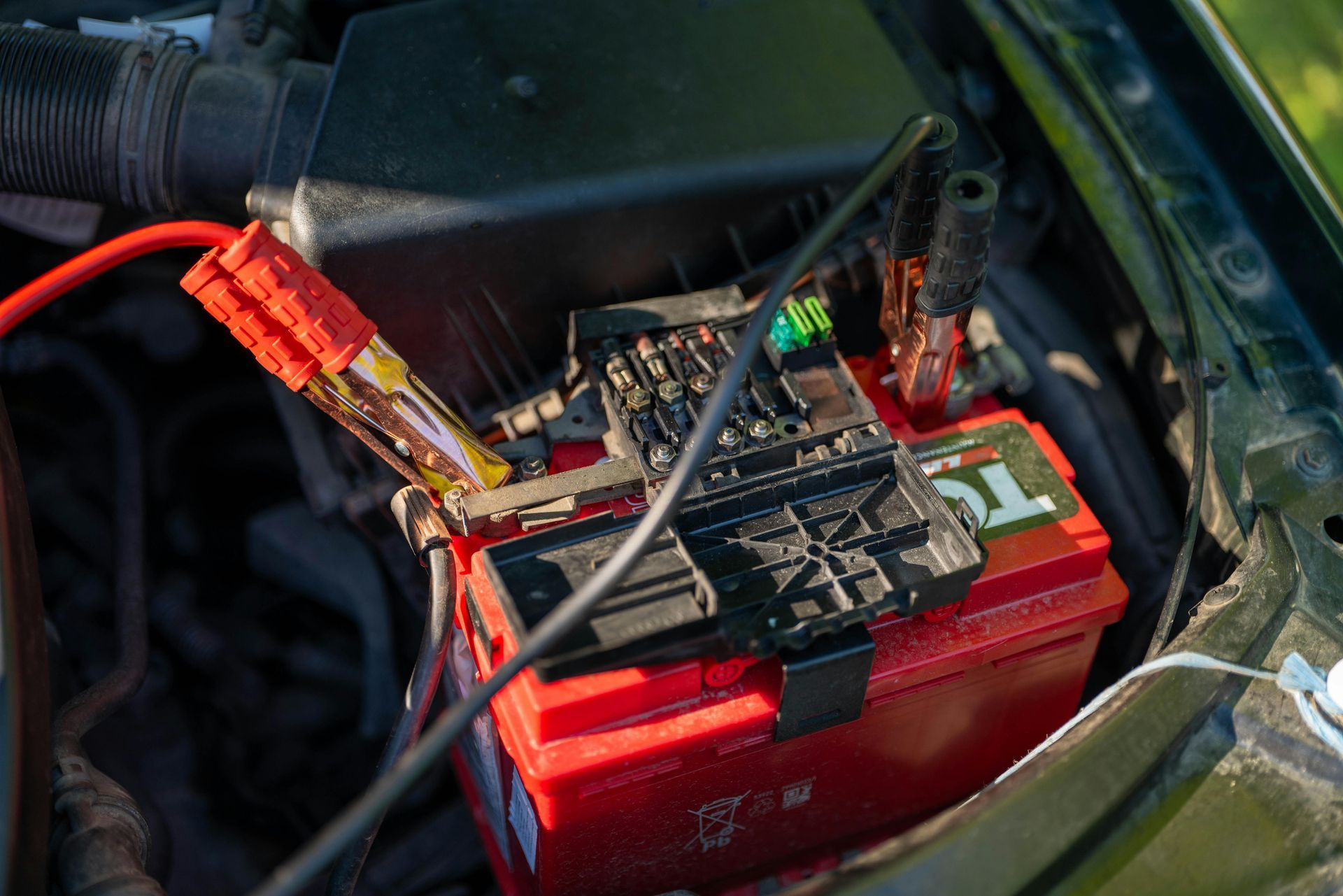How to Prepare Your Car for Spring Pollen Season in North Carolina
Auto Shops Located in: Chapel Hill, Durham, Taleigh, Apex, and Cary North Carolina

During the spring, the NC Triangle tends to get lots of pollen, with the powdery substance coating any vehicles that aren’t stored in a garage for the whole season. Beyond causing more allergy symptoms, pollen can actually damage your vehicle’s paint and clog your air filters. As you try to stop pollen from hurting your car, take a moment to learn more about why pollen is bad for cars and how to care for your vehicle during pollen season.
Why Is Pollen Bad for Cars?
Besides hurting your car’s appearance, pollen can have a few negative effects on your vehicle. For example, pollen has tiny spikes that cause it to stick to a vehicle’s exterior, with these spikes digging into the paint. When the pollen isn’t removed, it will expose your paint job to rust and oxidation.
Pollen can also clog air filters, making your HVAC system work harder to force air through the clogged filter. A struggling HVAC system can lead to refrigerant leaks, reduced airflow in a vehicle’s cabin, and less effective cooling. Pollen can also worsen your vehicle’s air quality if you have lots of it in your filters or if it gets tracked into the vehicle.
How Long Is Peak Pollen Season?
Tree pollen in the NC Triangle typically starts around the beginning of March and will significantly increase after mid-March, with peak pollen season occurring during the first week of April. After that first week, tree pollen should continue to decrease gradually until the end of May. The yellow pollen that gets all over your car during this time frame primarily comes from pine trees, and peak amounts of it occur for about three weeks.
5 Tips for Preparing Your Car for Spring Pollen Season
Since pollen can harm cars and the NC Triangle tends to get a lot of pollen from pine trees, it’s important to prepare your vehicle for pollen season. Whether it’s checking your filters, washing your car more often, or applying a protective wax coating, there’s a lot you can do to prevent pollen buildup on your vehicle. Learn more about how to prepare your car for pollen season below:
1. Check Your Filters
While most people worry about how pollen will make their car look or affect their paint job, it can actually mess with your engine and cabin air filters. During the spring, these filters will catch pollen and eventually become clogged. Clogged filters can cause several issues, such as harming your engine’s performance, reducing your vehicle’s air quality, and decreasing your vehicle’s airflow.
Before the spring, have your filters checked and replace them if they’re already clogged or close to being clogged. If they’re still clean, check them in mid-spring to see if they’re clogged with pollen.
Get New Air Filters at Chapel Hill Tire
2. Wash Your Car More Often
Wondering how often you should wash your car during pollen season? Though some sources online say you should handwash your car every other day, this amount of washing is likely overkill, especially if you have a busy schedule. Generally, handwashing your vehicle once a week is a good way to prevent too much pollen buildup and stop it from damaging your paint.
In between the weekly car washes, you can also rinse the pollen off daily with a high-pressure water hose to reduce pollen buildup and give your vehicle a cleaner appearance. Even if you do hose down your car every day, you’ll still want to handwash your vehicle weekly, as you won’t get all the pollen off your exterior with just a rinse. Handwashing your vehicle with an approved soap once a week will help loosen the pollen’s grip on your paint and protect it from pollen-related damage.
3. Use Distilled Water, Microfiber Towels, and Approved Cleaning Products While You Wash Your Car
If you’re wondering how to clean pollen off your car, review our tips for washing a car during pollen season below:
- Rinse with Distilled Water and a High-Pressure Water Hose: Begin by parking your car out in an open space, and then use your high-pressure water hose on each panel of your vehicle. Next, spray any pollen you see off of your windshield, roof, and hood. If you can, try to use distilled water during your rinses. Since distilled water doesn’t contain any minerals or impurities that would stick to your vehicle’s exterior, using it can prevent water spots and streaks.
- Wash the vehicle with approved soap and microfiber cloth: After you’ve rinsed the vehicle, get a bucket filled with distilled water, a microfiber cloth, and an approved car wash soap. Mix the soap with water before dipping the microfiber cloth in it. Once the cloth is damp, handwash your car’s exterior, gently wiping any pollen you can see off of the vehicle. Make sure to use a microfiber cloth, as these cloths are gentle on paint and excel at trapping pollen.
- Remember to clean your interior: While you might not need to clean your interior once a week, doing so at least once or twice a month is still important during pollen season. Since you can track in lots of pollen while getting in your vehicle, wipe down hard surfaces with a damp microfiber cloth and use a vacuum on your seats and floors to remove any pollen.
4. Apply a Protective Coating
Sometimes, you won’t have time to promptly remove pollen, and wax can help reduce any potential damage the pollen could do to your paint. When you apply wax to your vehicle, it will add a protective barrier between your car’s paint and the pollen. This extra protection can reduce the negative impacts of pollen and can buy you some time before you need to handwash your vehicle again.
Alongside being protective, wax also makes it easier for you to rinse pollen off your car. Since the wax stops pollen from digging its barbs into the paint, the pollen will wash off faster, even when you’re not able to do a proper handwash. An added bonus is that wax will make your car shine! Check with your local auto shop about what wax will work best for your car, as some cheap, low-quality car waxes can actually be abrasive and harm your vehicle’s paint.
5. Use a Car Cover When Parking Outdoors
If you park outside during the spring, the best way to prevent pollen from getting all over your car is to place a car cover over it whenever you park. These covers prevent pollen from getting on your car’s exterior in the first place, and they can significantly reduce the amount of pollen buildup, as the only chance for pollen to get on it will be while you’re driving.
When you don’t have a car cover, you can reduce the amount of pollen that gets on your vehicle by paying attention to where you park. If there’s a parking spot right beside some trees or other flowering plants, look elsewhere for a parking space. Generally, areas with fewer plants and trees will be better, as you won’t be parking right beside pollen producers.
Choose a Chapel Hill Tire for Vehicle Detailing Services in the NC Triangle
If you’d rather not wash your car yourself and are looking for car detailing services in Chapel Hill, Durham, Raleigh, or the surrounding Triangle area, Chapel Hill Tire can help. We offer interior and exterior detailing services, where we’ll thoroughly wash the interior and exterior of your car, ensuring your car is completely pollen-free by the time we’re done. Some of our detailing packages also include protective waxes, and we even offer mobile car wash and detailing services where we’ll come to you!
Check out our detailing services today. If you’re ready to receive our detailing services, please make an appointment at one of our convenient locations in the Triangle area. You’ll also want to review our coupons to see how much you can save on our services!















